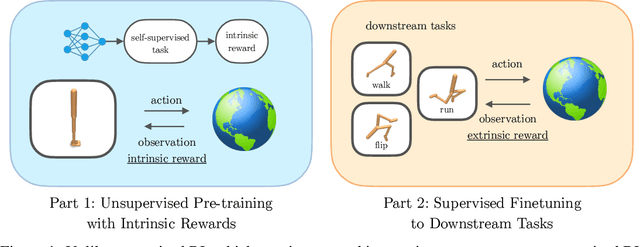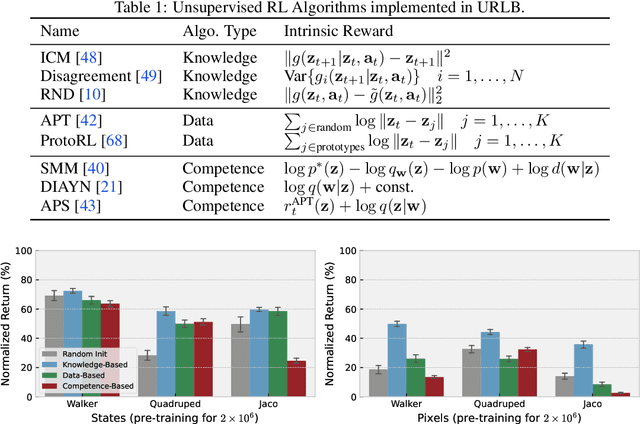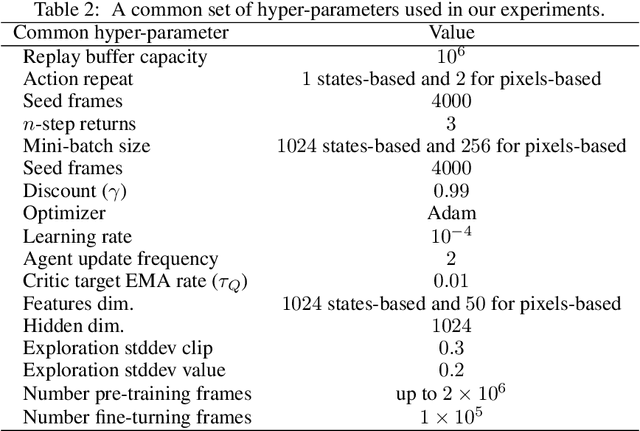Catherine Cang
URLB: Unsupervised Reinforcement Learning Benchmark
Oct 28, 2021



Abstract:Deep Reinforcement Learning (RL) has emerged as a powerful paradigm to solve a range of complex yet specific control tasks. Yet training generalist agents that can quickly adapt to new tasks remains an outstanding challenge. Recent advances in unsupervised RL have shown that pre-training RL agents with self-supervised intrinsic rewards can result in efficient adaptation. However, these algorithms have been hard to compare and develop due to the lack of a unified benchmark. To this end, we introduce the Unsupervised Reinforcement Learning Benchmark (URLB). URLB consists of two phases: reward-free pre-training and downstream task adaptation with extrinsic rewards. Building on the DeepMind Control Suite, we provide twelve continuous control tasks from three domains for evaluation and open-source code for eight leading unsupervised RL methods. We find that the implemented baselines make progress but are not able to solve URLB and propose directions for future research.
Behavioral Priors and Dynamics Models: Improving Performance and Domain Transfer in Offline RL
Jun 18, 2021



Abstract:Offline Reinforcement Learning (RL) aims to extract near-optimal policies from imperfect offline data without additional environment interactions. Extracting policies from diverse offline datasets has the potential to expand the range of applicability of RL by making the training process safer, faster, and more streamlined. We investigate how to improve the performance of offline RL algorithms, its robustness to the quality of offline data, as well as its generalization capabilities. To this end, we introduce Offline Model-based RL with Adaptive Behavioral Priors (MABE). Our algorithm is based on the finding that dynamics models, which support within-domain generalization, and behavioral priors, which support cross-domain generalization, are complementary. When combined together, they substantially improve the performance and generalization of offline RL policies. In the widely studied D4RL offline RL benchmark, we find that MABE achieves higher average performance compared to prior model-free and model-based algorithms. In experiments that require cross-domain generalization, we find that MABE outperforms prior methods. Our website is available at https://sites.google.com/berkeley.edu/mabe .
 Add to Chrome
Add to Chrome Add to Firefox
Add to Firefox Add to Edge
Add to Edge